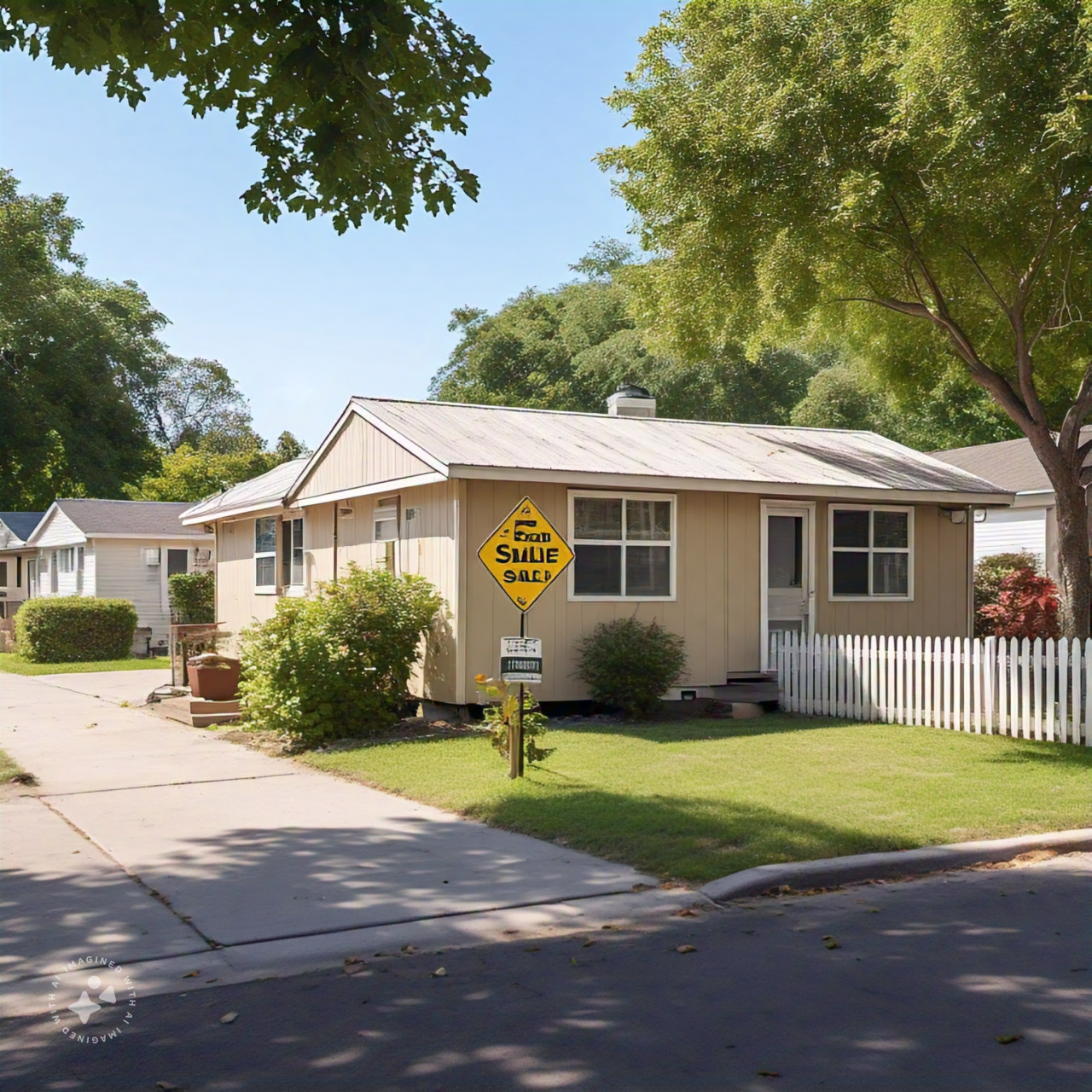Mobile home investing offers a unique and potentially profitable avenue for those looking to diversify their real estate portfolios. This niche market presents several advantages, including affordability, lower competition, and the ability to generate passive income. As home prices rise, mobile homes provide an appealing option for affordable living, and for investors, this market offers numerous opportunities to generate consistent returns. In this blog, we’ll explore the benefits, challenges, and strategies for mobile home investing, offering insights on how to succeed in this growing field.
Why Consider Mobile Home Investing?
Mobile home investing has become an attractive investment option for many looking to expand their portfolios, primarily due to its affordability. One of the main reasons investors consider mobile homes is the lower upfront costs compared to traditional real estate. The affordability of mobile homes allows new investors to enter the market without needing substantial capital. Additionally, mobile homes typically have lower maintenance costs than traditional homes. This makes them a cost-effective option for long-term ownership and rental purposes. Over time, investors can also take advantage of the increasing demand for affordable housing as the prices of traditional homes continue to rise.
Affordable Entry Point
The affordability of mobile homes is a key reason why they appeal to investors. When compared to traditional homes, mobile homes have significantly lower price points. This makes them an ideal starting point for new investors looking to break into real estate without committing large amounts of money. The low initial investment required for mobile homes provides an opportunity for high returns on investment, especially if the properties are maintained well and rented out consistently. As the housing market continues to grow, mobile homes remain an affordable alternative for many people in need of housing.
High Rental Demand
Another key reason to consider mobile home investing is the rising demand for affordable rental options. As home prices and rental rates increase in many areas, mobile homes provide a cost-effective housing solution for families and individuals seeking affordable alternatives. The demand for mobile homes remains strong, especially in areas where housing costs are prohibitively high. This constant demand can result in stable rental income for investors who own mobile homes, either on land they own or in mobile home parks. Higher occupancy rates and lower vacancy rates are often seen in mobile home rentals, making this a reliable investment for generating passive income.
Lower Maintenance Costs
Mobile homes generally require less maintenance than traditional homes, which makes them an attractive investment option. The materials used in mobile home construction are simpler and less expensive, which helps keep maintenance costs low. Additionally, the smaller size of mobile homes means that repairs and upkeep are often less costly than those for larger properties. As a result, investors are likely to see fewer maintenance headaches and expenses. While repairs are still a part of mobile home ownership, they are generally less frequent and more affordable than those associated with traditional real estate, making mobile homes an attractive option for those seeking lower operational costs.
Potential for Passive Income
One of the primary advantages of mobile home investing is the potential for generating passive income. By renting out mobile homes, either on land that you own or in a mobile home park, investors can secure a steady stream of income with relatively low operating costs. Mobile homes also offer the flexibility of long-term rental agreements or even rent-to-own options, which can provide further financial stability. The ability to generate consistent rental income while maintaining low overhead costs is one of the key reasons why mobile home investing is considered a great way to build wealth over time.
Types of Mobile Home Investments
There are several different ways to invest in mobile homes, each with its own set of advantages. One option is purchasing mobile homes on land, which allows investors to capitalize on both the appreciation of the land and the rental income from the mobile home. Another approach is to invest in mobile home parks, where you own the land and rent spaces to mobile home owners or tenants. This model offers scalability and the potential for multiple income streams from numerous mobile homes or units within the park. A more active investment strategy includes flipping mobile homes, where investors purchase underpriced homes, make necessary repairs, and resell them for a profit. There are also rent-to-own options, where you lease the mobile home to tenants with an option for them to purchase it later. Each of these strategies has the potential to yield strong returns depending on the investor’s goals and preferences.
Challenges in Mobile Home Investing
While mobile home investing has many advantages, it also comes with its share of challenges. Financing mobile homes can be more difficult than securing loans for traditional properties. Since mobile homes are typically considered personal property rather than real estate, lenders may impose stricter requirements, and some may not offer financing at all. Additionally, unlike traditional homes, mobile homes tend to depreciate in value over time, which can make them less attractive to some investors who are looking for capital appreciation. However, when approached as a rental or cash flow investment, depreciation becomes less of an issue. Another challenge in mobile home investing is navigating zoning and legal regulations, particularly when it comes to mobile home parks or placing homes on land. It’s important to research local laws and work with local authorities to avoid costly legal mistakes.
Financing Issues
One of the biggest challenges mobile home investors face is financing. Securing a loan for mobile homes can be more complicated than obtaining a traditional mortgage. Many lenders treat mobile homes as personal property, which limits financing options. Additionally, mobile homes that are not affixed to land may not qualify for traditional mortgage loans, leading investors to seek out specialized financing for mobile homes. Working with lenders who specialize in mobile home loans or seeking alternative financing options, such as seller financing, can help overcome this challenge. Investors should be prepared to spend more time researching and securing funding to make their mobile home investments work.
Depreciation of Mobile Homes
Unlike traditional houses, which generally appreciate in value over time, mobile homes tend to depreciate. This can be a significant concern for investors looking for capital appreciation. However, mobile homes are often purchased for rental income rather than resale value. By focusing on cash flow and rental returns rather than long-term value growth, investors can still see strong returns despite the depreciation of the home. Additionally, by purchasing mobile homes at a discount and maintaining them well, investors can offset depreciation with consistent rental income.
Zoning and Legal Issues
Navigating zoning and legal issues can be a hurdle for mobile home investors. Local regulations often govern where mobile homes can be placed, what types of mobile homes are allowed, and the rules for mobile home parks. Investors should ensure they understand local zoning laws and regulations before making an investment. This includes understanding requirements for land use, rental agreements, and tenant rights in mobile home parks. Working with a real estate attorney or consulting local authorities can help avoid legal challenges down the line.
Tips for Success in Mobile Home Investing
To succeed in mobile home investing, it’s essential to do thorough research and be strategic in your approach. One key tip is to focus on cash flow rather than appreciating assets. Mobile homes are ideal for generating steady rental income, so consider properties that offer consistent returns. Additionally, purchasing undervalued homes and making improvements can provide an opportunity for significant returns on investment. Finally, it’s important to understand the local market and regulations, as these factors can have a significant impact on your investment strategy.
Conclusion
Mobile home investing offers a unique and profitable opportunity for real estate investors seeking affordable entry points, high rental demand, and the potential for consistent passive income. While there are challenges, including financing difficulties and legal regulations, the right strategy can help investors succeed in this niche market. By focusing on cash flow, understanding the local market, and navigating potential obstacles, mobile home investing can be a rewarding addition to any real estate portfolio.





